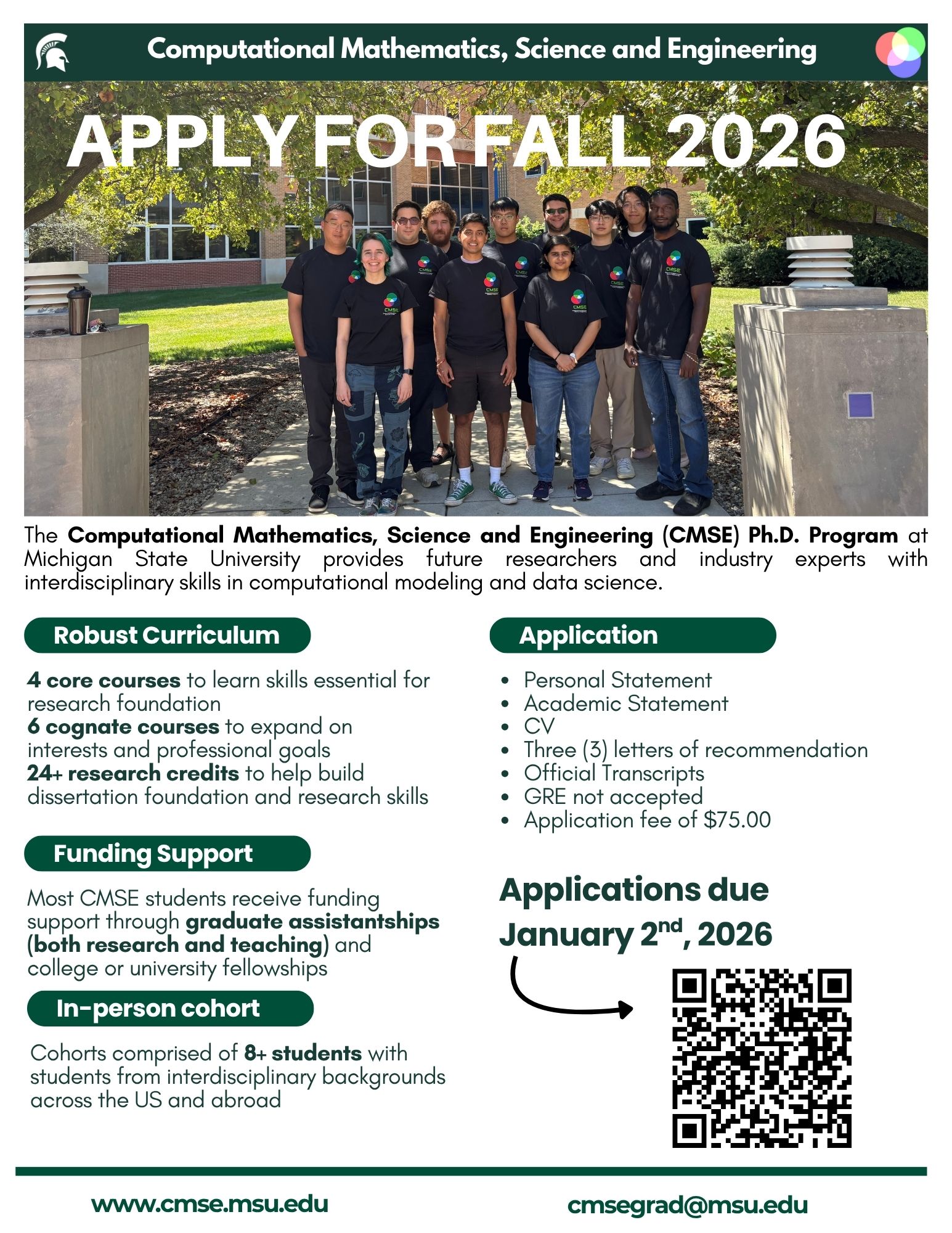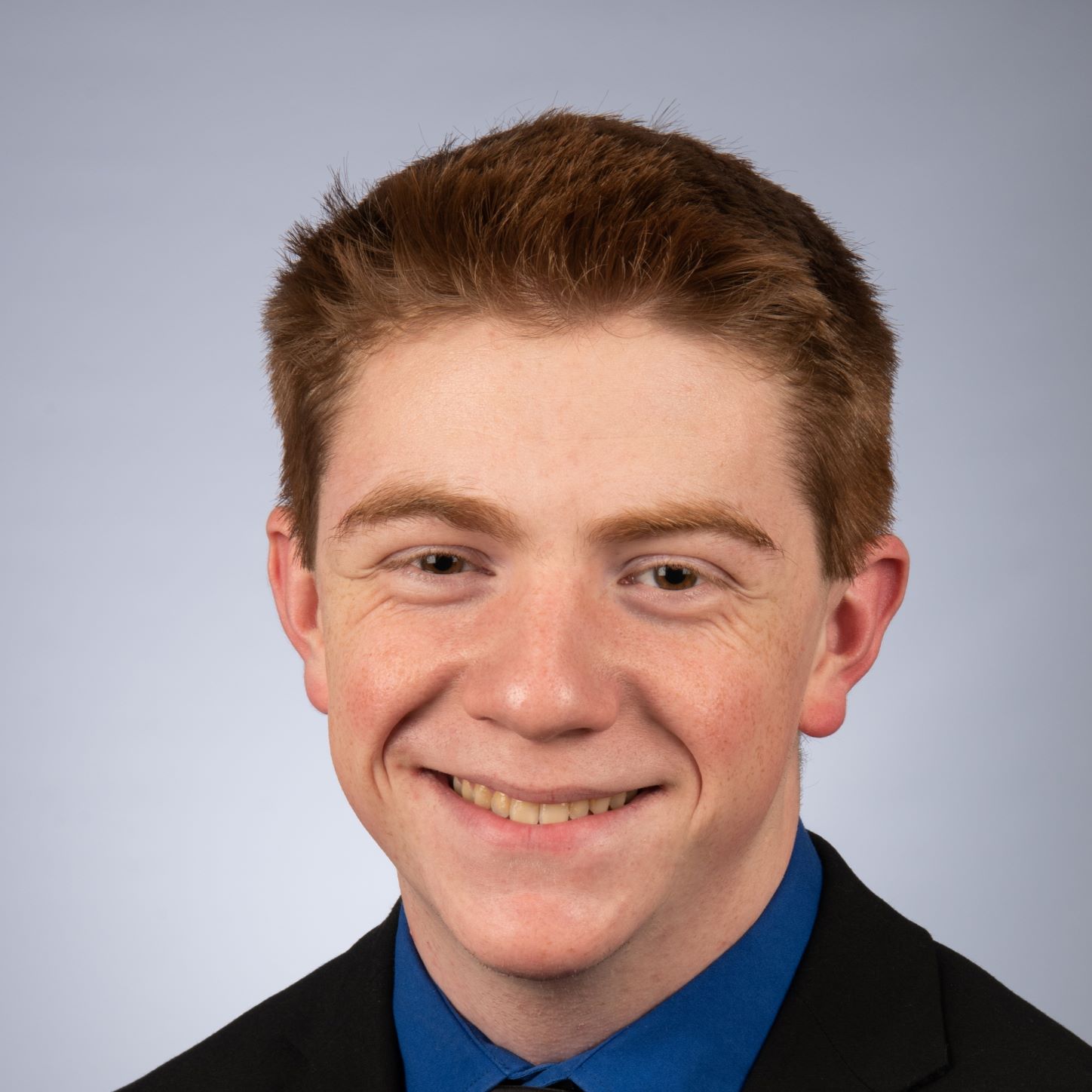Dissertation Defense of CMSE Joey Bonitati
Department of Computational Mathematics, Science & Engineering
Michigan State University
Dissertation Defense Notice
Friday, August 16, 2024, 12:00 PM
Room: BPS 1300
ZOOM: https://msu.zoom.us/j/98811839125
(Meeting ID: 988 1183 9125)
No Passcode Needed
Eigenstate Preparation on Quantum Computers
Joey Bonitati
Abstract:
This thesis investigates quantum algorithms for eigenstate preparation, with a primary focus on solving eigenvalue problems such as the Schrödinger equation by utilizing near-term quantum computing devices. These problems are ubiquitous in several scientific fields, but more accurate solutions are specifically needed as a prerequisite for many quantum simulation tasks. To address this, we establish three methods in detail: quantum adiabatic evolution with optimal control, the Rodeo Algorithm, and the Variational Rodeo Algorithm. The first method explored is adiabatic evolution, a technique that prepares quantum states by simulating a quantum system that evolves slowly over time. The adiabatic theorem can be used to ensure that the system remains in an eigenstate throughout the process, but its implementation can often be infeasible on current quantum computing hardware. We employ a unique approach using optimal control to create custom gate operations for superconducting qubits and demonstrate the algorithm on a two-qubit IBM cloud quantum computing device. We then explore an alternative to adiabatic evolution, the Rodeo Algorithm, which offers a different approach to eigenstate preparation by using a controlled quantum evolution that selectively filters out undesired components in the wave function stored on a quantum register. We show results suggesting that this method can be effective in preparing eigenstates, but its practicality is predicated on the preparation of an initial state that has significant overlap with the desired eigenstate. To address this, we introduce the novel Variational Rodeo Algorithm, which replaces the initialization step with dynamic optimization of quantum circuit parameters to increase the success probability of the Rodeo Algorithm. The added flexibility compensates for instances in which the original algorithm can be unsuccessful, allowing for better scalability. This research seeks to contribute to a deeper understanding of how quantum algorithms can be employed to attain efficient and accurate solutions to eigenvalue problems. The overarching goal is to present ideas that can be used to improve understanding of nuclear physics by providing potential quantum and classical techniques that can aid in tasks such as the theoretical description of nuclear structures and the simulation of nuclear reactions.
Committee Members:
Dean Lee (Chair)
Heiko Hergert
Filomena Nunes
Saul Beceiro-Novo
Alexei Bazavov
Brian O'Shea



